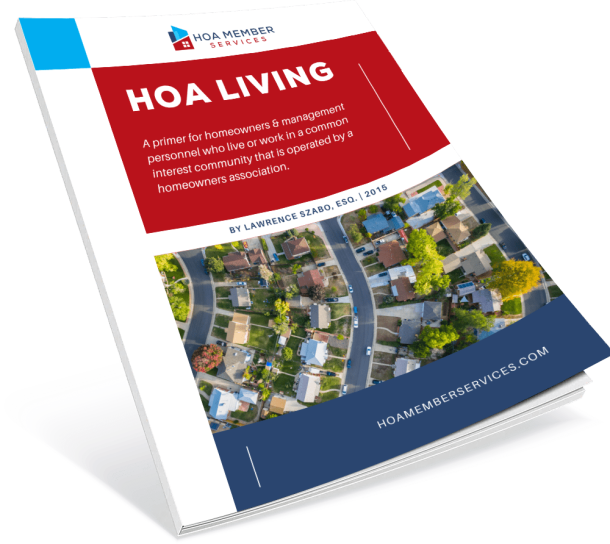How To Fight Unenforceable HOA Rules
- Blog
What happens if your HOA rules seem overbearing or downright unfair? It’s crucial to remember that HOAs are not all-powerful. Their authority has limits, especially when their rules conflict with state and local laws or federal laws. Understanding which rules are enforceable and knowing which are not can empower you. It can help you challenge what you believe is unfair in your community.

How Do You Identify Unenforceable HOA Rules?
It’s no secret that navigating the rules and regulations of an HOA can be complicated. Yet, some rules, regardless of their intent, simply don’t hold up legally. These include regulations that defy federal or state laws, are inconsistently enforced, or were established without following the proper procedural channels.
As a self-regulated entity, an HOA oversees the communal aspects of a neighborhood. Residents pay fees for the upkeep and management of shared spaces. In return, the HOA ensures a well-rounded community that all residents enjoy living in.
However, this arrangement has an important piece. It is adherence to a set of rules called the Covenants, Conditions, and Restrictions (CC&Rs). The HOA may add more rules over time or as they see fit. Failure to comply to these rules can lead to fines, restricted access to community amenities, and other penalties. Before you consider contesting an HOA rule, make sure to compare it against the following criteria in this article to determine if it is enforceable or not.

What HOA Rules Are Unenforceable?
Not all rules set forth by an HOA can be legally enforced. Some HOA’s governing documents may conflict with state and federal laws, rendering them invalid. Homeowners must recognize these unenforceable rules. This will help them know when they might have reason to challenge the HOA’s decisions.
- Freedom of Speech: The U.S. Constitution protects your right to free speech. HOAs cannot prohibit you from displaying political signs or expressing your political views on your property, although they can regulate the location for aesthetic reasons.
- Discrimination: Under the Fair Housing Act, HOAs cannot discriminate against individuals based on race, color, religion, sex, national origin, familial status, or disability. This includes selective enforcement of rules or denying access to community amenities.
- Religious Freedom: Similar to freedom of speech, HOAs cannot infringe upon your right to practice your religion or display religious symbols.
- Right to Bear Arms: While HOAs can impose certain restrictions on the use or carrying of firearms in common areas, they cannot outright prohibit homeowners from owning firearms.
- Majority Vote: For a new rule to be enforceable, it must be approved by a majority vote within the community. Rules enacted without this democratic process are not valid.
- Inconsistency and Selectivity: Rules must be applied uniformly. If an HOA is found to enforce rules selectively or inconsistently, such enforcement can be challenged.
- Violation of Federal or State Law: HOA rules cannot supersede federal or state laws. For example, restrictions on displaying the American flag are unenforceable due to the Freedom to Display the American Flag Act.
- Prohibiting Solar Drying: Some states have “right to dry” laws that prevent HOAs from banning clotheslines, though they can regulate their placement and size.
- Antenna Restrictions: Federal regulations protect homeowners’ rights to install antennas or satellite dishes, though HOAs can set restrictions on their size and placement.
- Fines Without Reason: HOAs can only impose fines for actual violations of community rules. Arbitrary fines without a clear violation are unenforceable.

How Should You Resolve Disputes with Your HOA?
Disputes between homeowners and homeowners associations are not uncommon. If you find yourself in disagreement with your HOA, consider the following steps for resolution:
- Board Meeting: Start by addressing your concerns in a board meeting. Clear communication can often resolve issues without further action.
- Dispute Resolution: If a board meeting does not resolve the issue, consider formal dispute resolution, which may involve mediation or arbitration.
- Legal Action: As a last resort, legal action against the HOA can be considered. Be aware, however, that this can be a time-consuming and costly process.

At What Point Should You Pursue Legal Action?
Suing your HOA is a serious decision and often a last resort. It’s crucial to exhaust all other dispute resolution options before proceeding with legal action. Remember, the goal of legal counsel is to find a fair resolution that respects both your rights and the community’s well-being.
Working with a knowledgeable attorney helps. So does having a clear understanding of your goals and the potential outcomes. It can help you navigate this tough process well.
Steps for Suing Your HOA
- Review Your Governing Documents: Before taking any legal action, it’s crucial to thoroughly review your HOA’s CC&Rs (Covenants, Conditions, and Restrictions) and any other relevant governing documents. This review can help determine if the HOA is acting within its bounds or if it has overstepped its authority.
- Consult with an Attorney: Legal guidance is invaluable in these situations. An attorney experienced in real estate or HOA law can provide advice on how to proceed and whether your case has merit. They can also help you understand the potential costs and outcomes of legal action.
- Consider Time and Cost: Legal actions can be lengthy and expensive. Assess whether the issue is worth the potential time, energy, and money. Sometimes, collective action with other homeowners can share costs and strengthen the case.
- Gather Evidence: Compile all relevant documentation, including emails, letters, photographs, and witness statements that support your case. Organized and comprehensive evidence can significantly impact the outcome.
- Attempt Settlement: Before heading to court, try to settle the dispute with the HOA. A mediation session could lead to a resolution that avoids the courtroom altogether.
- Prepare for Court: If settlement efforts fail, be prepared for a court battle. Work closely with your attorney to develop a compelling case, focusing on clear, factual arguments and avoiding emotional pleas.

Other Commonly Asked Questions
1. What are the expenses involved in suing my HOA?
Litigation against your HOA typically falls under the category of small claims court cases. Filing a lawsuit in small claims court generally costs between $30 and $80.
2. What financial compensation can you expect from suing my HOA?
In the realm of small claims court, you might be eligible to receive up to $10,000 as a maximum settlement. However, the exact amount will depend on the specifics of your case and the judgment rendered.
3. How should you approach conflict during an HOA meeting?
Navigating disputes effectively is crucial, especially in heated scenarios. Here are several strategies to manage conflict:
- Ensure your responses to HOA board members are precise and substantiated with relevant details such as dates, times, and identities of involved individuals.
- Maintain composure, courtesy, and professionalism, even when interacting with disgruntled board members.
- Uphold your stance regarding the enforceability of certain rules, providing clarifications as needed.
- Consider engaging a neutral mediator, like your community manager, to facilitate resolution if the conflict escalates.

4. Protect Your Homeowner’s Rights In An HOA
Dealing with an HOA can feel daunting. But, if you have the knowledge and understand your rights, you can navigate this with more confidence. You must understand the legal boundaries in which HOAs operate. This understanding can greatly impact your approach and success in disputes. These disputes may involve questioning a fine or contesting a rule. If you have further questions about your HOA community check out our resources or become a member and reach out directly to us for support!
Subscription Required to Continue Reading
To view the full HOA Featured Article, you must have a Subscription with HOA Member Services
Become a Member
Personal Monthly
-
Access to over 600 Articles & Case Decisions
-
Access to hundreds of Resources
-
HOA Newsletter
-
Free Copy of HOA LIVING
-
25% OFF Download Forms
-
1 User
Personal
-
Access to over 600 Articles & Case Decisions
-
Access to hundreds of Resources
-
HOA Newsletter
-
Free Copy of HOA LIVING
-
25% OFF Download Forms
-
1 User
Pro
-
Access to over 600 Articles & Case Decisions
-
Access to hundreds of Resources
-
HOA Newsletter
-
Free Copy of HOA LIVING
-
Free Unlimited Access to Download Forms (save $1000s!)
-
Unlimited Personal Support from HOA Attorney
-
1 User
HOA Team
-
Access to over 600 Articles & Case Decisions
-
Access to hundreds of Resources
-
HOA Newsletter
-
Free Copy of HOA LIVING
-
Free Unlimited Access to Download Forms (save $1000s!)
-
Unlimited Personal Support from HOA Attorney
-
Up to 10 Users



